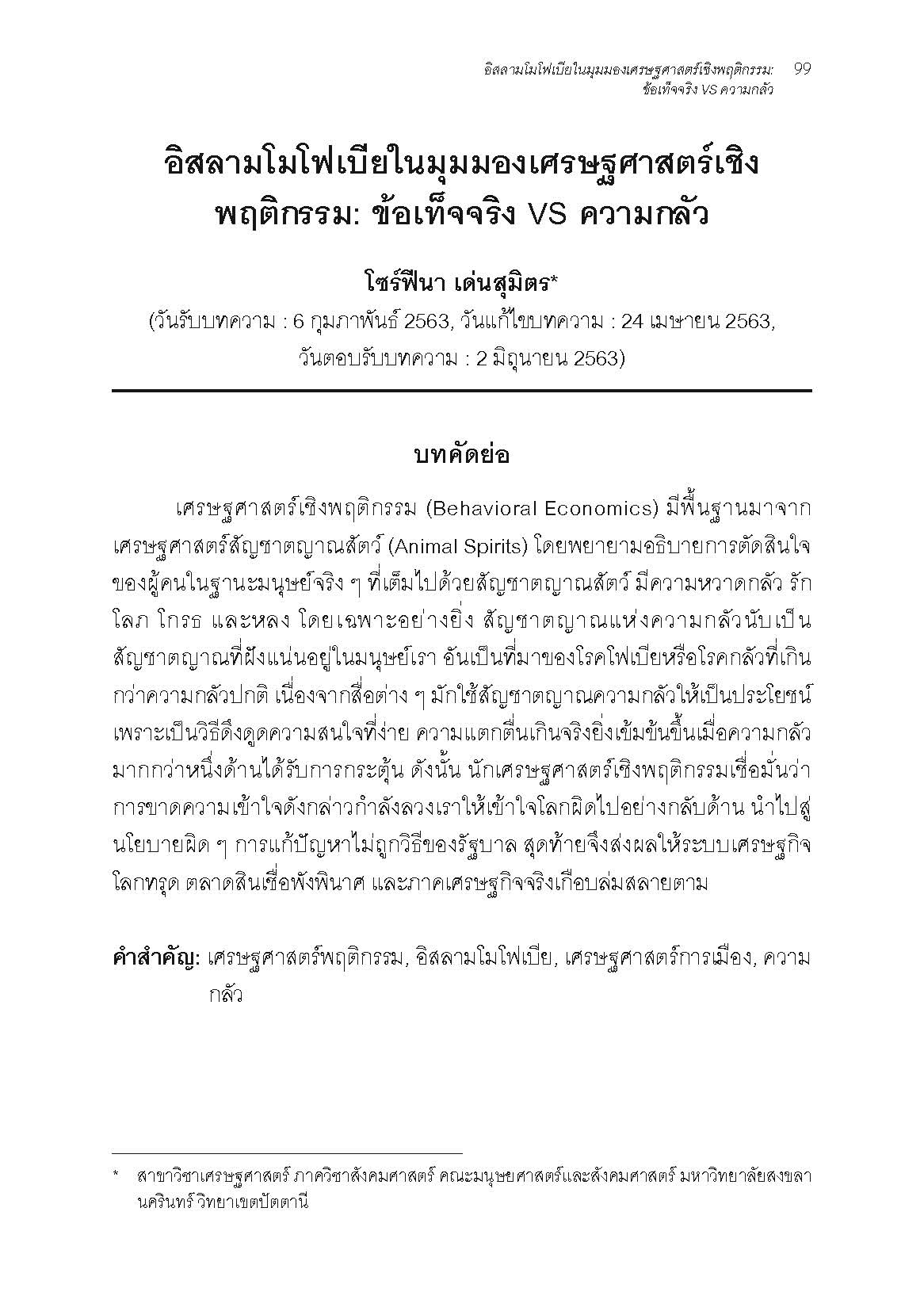Islamophobia under the View of Behavioral Economics: Facts vs Fear
Keywords:
Behavioral Economics, Islamophobia, Political Economy, FearAbstract
The fundamental of behavioral economics basically comes from animal spirits that try to explain the decision making as real humans who are full of animal instincts such as fear, love, greed, anger and delusion. Particularly, fear is an ingrained instinct inside us that causes of phobia (an extreme or irrational fear of or aversion to something). Various media tend to apply fear in order to attract the audiences because it is an easy way. Therefore, the behavioral economists believe that the lack of real understanding about this is fooling us back in the wrong perspectives which lead to incorrect policies and government solutions. Finally, resulting in the global economic system, real economy, and credit market is almost collapsing.
References
เอกสารภาษาไทย
ธนิดา จิตร์น้อมรัตน์. (2561). "แนวคิดทางทฤษฎีของการประกันภัยรายย่อย." สุทธิปริทัศน์, 32 (102), 264-276.
ฮันส์ โรสลิง, โอลา โรสลิง และอันนา เรินน์ลุนด์. (2562). จริง ๆ แล้วโลกดีขึ้นทุกวัน. นที สาครยุทธเดช (แปล). กรุงเทพฯ: อมรินทร์บุ๊ค.
จอร์จ อาเคอร์ลอฟ และโรเบิร์ต เจ. ชิลเลอร์. (2553). เศรษฐศาสตร์สัญชาตญาณสัตว์. แอลสิทธิ์ เวอร์การา (แปล). กรุงเทพฯ: มติชน.
แดน อาเรียลี่. (2553). พฤติกรรมพยากรณ์ Predictably Irrational. พ. อุทัยเลิศอรุณ และว. ภัทรทีปกร (แปล). กรุงเทพฯ: สำนักพิมพ์วีเลิร์น.
______. (2555). เหตุผลที่ไม่ควรมีเหตุผล. พรเลิศ อิฐฐ์ และวิโรจน์ ภัทรทีปกร (แปล). กรุงเทพฯ: วีเลิร์น.
ริชาร์ด ธาเลอร์ (2559). เศรษฐศาสตร์พฤติกรรม: เศรษฐศาสตร์แนวใหม่ที่มองคนไปไกลกว่าสัตว์เศรษฐกิจ. ศ. ต. กุศลวิทิตกุล (แปล) กรุงเทพฯ: โอเพ่นเวิลด์ส พับลิชชิ่ง เฮาส์.
เอกสารภาษาอังกฤษ
Kahneman, D. & Tversky, A. (1979). "Prospect Theory: An Analysis of Decision under Risk." Econometrica, 47(2), 263-291.






